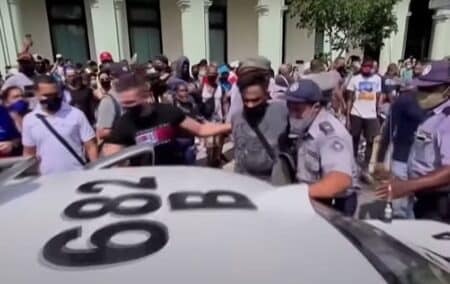The internet has been cut off in Cuba. This follows days of unprecedented protests against the Havana regime, which have been coordinated on social media.
A number of social media platforms, including Facebook and WhatsApp, have been throttled by the government, which owns the country’s internet provider.
The protests, which began on Sunday, are in response to a struggling economy, mounting food shortages, and the poor handling of the Covid-19 pandemic.
The protests do not appear to be centrally coordinated; news about them seems to have spread after details of a gathering was broadcast on Facebook.
Freely available internet in Cuba is fairly new, with access via cellphones only being introduced in 2018. This has given Cubans the opportunity to spread and share information outside the tightly controlled state media.
The BBC quoted Sebastián Arcos, associate director of the Cuban Research Institute at Florida International University, as saying that the protests were ‘absolutely and definitely fuelled by increased access to internet and smartphones’.
In response to the protests, Cuba’s president, Miguel Diaz-Canel, said the protesters were ‘counter-revolutionaries’ and that they were being co-ordinated and funded from the United States, a long-standing adversary of Cuba.

